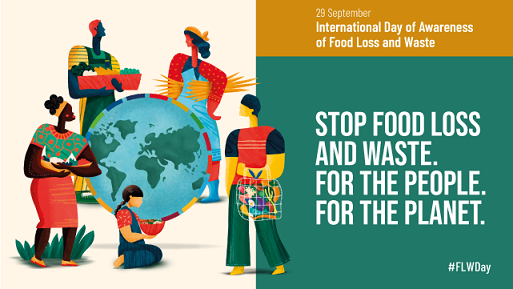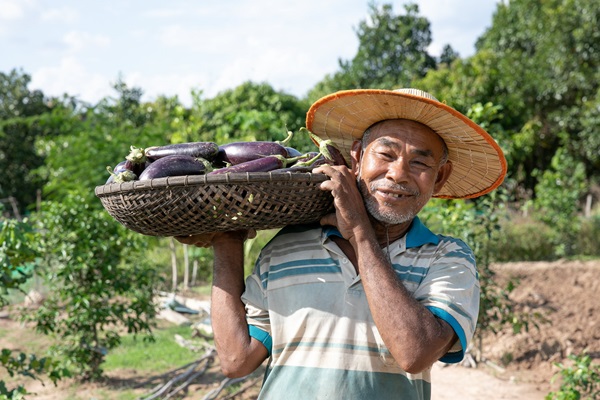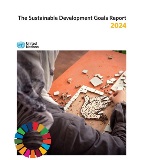Ghana
News

International Day of Awareness of Food Loss and Waste 2024 | Call to Action
30/05/2024

International Day of Awareness of Food Loss and Waste: FAO calls for circular model in agrifood systems
29/09/2023

Transforming agrifood systems requires changing policies, mindsets, and business models
18/01/2023
Articles
The impact of refrigeration on food losses and associated greenhouse gas emissions throughout the supply chain
29/05/2024
One-third of food produced globally is wasted while approximately 800 million people suffer from hunger. Meanwhile, food losses produce approximately 8% of total anthropogenic greenhouse gas (GHG) emissions. This study develops a food loss estimation tool to assess how improved access to the cold chain could impact food loss and its associated GHG emissions for seven food types in seven regions.
Amid food and climate crises, investing in sustainable food cold chains crucial
14/11/2022
The food cold chain has serious implications for climate change and the environment. Emissions from food loss and waste due to lack of refrigeration totalled an estimated 1 gigatonne of carbon dioxide (CO2) equivalent in 2017 – about 2 percent of total global greenhouse gas emissions.
Events
27/ 3
2024
UNEP Food Waste Index Report 2024 - Launch Event
Virtual Event, 27/03/2024
To mark the second annual International Day of Zero Waste, UNEP will launch its Food Waste Index Report 2024 on 27 March 2024. The report provides the latest global ...
29/ 3
2024
International Year of Millet: closing event
Hybrid Event, 29/03/2024
Through the Year’s observance, the unique nutritional qualities and agronomic traits of millets were demonstrated, thereby raising awareness and directing critically needed policy attention to their suitability for sustainable crop production systems, especially with minimal inputs and under adverse and changing climatic conditions. Additionally, key business opportunities were validated for di...
9/ 5
2024
2024 Food loss and waste masterclass: the basics
Virtual Event, 09/05/2024
The “2024 Food loss and waste masterclass series: the basics“ involves a number of virtual events targeted to youth that have an interest in reducing food loss and waste towards achieving agrifood system transformation and enhancing the sustainability of food supplies. The May 2024 session will cover FLW basic principles, but targeting those in European, African, North American and Car...
Projects
Publications

Get Involved - International Day of Awareness of Food Loss and Waste, 29 September 2024
12/07/2024
The fifth observance of the International Day of Awareness of Food Loss and Waste will highlight the critical need for financing to bolster efforts to reduce food loss and waste, contribute toachieving climate goals and advancing the 2030 Agenda for Sustainable Development.

The Sustainable Development Goals Report 2024
28/06/2024
The Sustainable Development Goals Report 2024 is the only UN official report that monitors global progress on the 2030 Agenda for Sustainable Development. Using the latest available data and estimates, the report provides a comprehensive assessment of the 2030 Agenda. It aims to serve as a foundational resource with the latest data and evidence for developing recommendations and solutions to advance progress towards the Sustainable Development Goals.

Agrifood solutions to climate change – FAO's work to tackle the climate crisis
29/11/2023
Amid a worsening climate crisis and slow progress in cutting greenhouse gases, sustainable agrifood systems and practices can help countries and communities to adapt, build resilience and mitigate emissions. FAO is working with countries and partners at all levels to address the challenges of food security, climate change and biodiversity loss. But success in this area will ultimately require global commitment to significantly increasing the quality and quantity of climate finance.
Multimedia
International Day of Awareness of Food Loss and Waste - UN Secretary General message | 29 September 2020
29/09/2020
António Guterres, UN Secretary-General on the occasion of the International Day of Awareness of Food Loss and Waste (29 September 2020)
1st International Day of Awareness of Food Loss and Waste - September 29
29/09/2020
When food is loss or wasted, all the resources that were used to produce this food -, including water, land, energy, labour and capital – go to waste. In addition, the disposal of food loss and waste in landfills, leads to greenhouse gas emissions, contributing to climate change.
How to tackle food loss and waste
14/10/2019
Although there may be an economic loss, food diverted to other economic uses, like animal feed, is not considered as food loss or waste, nor are the inedible parts of food products.
